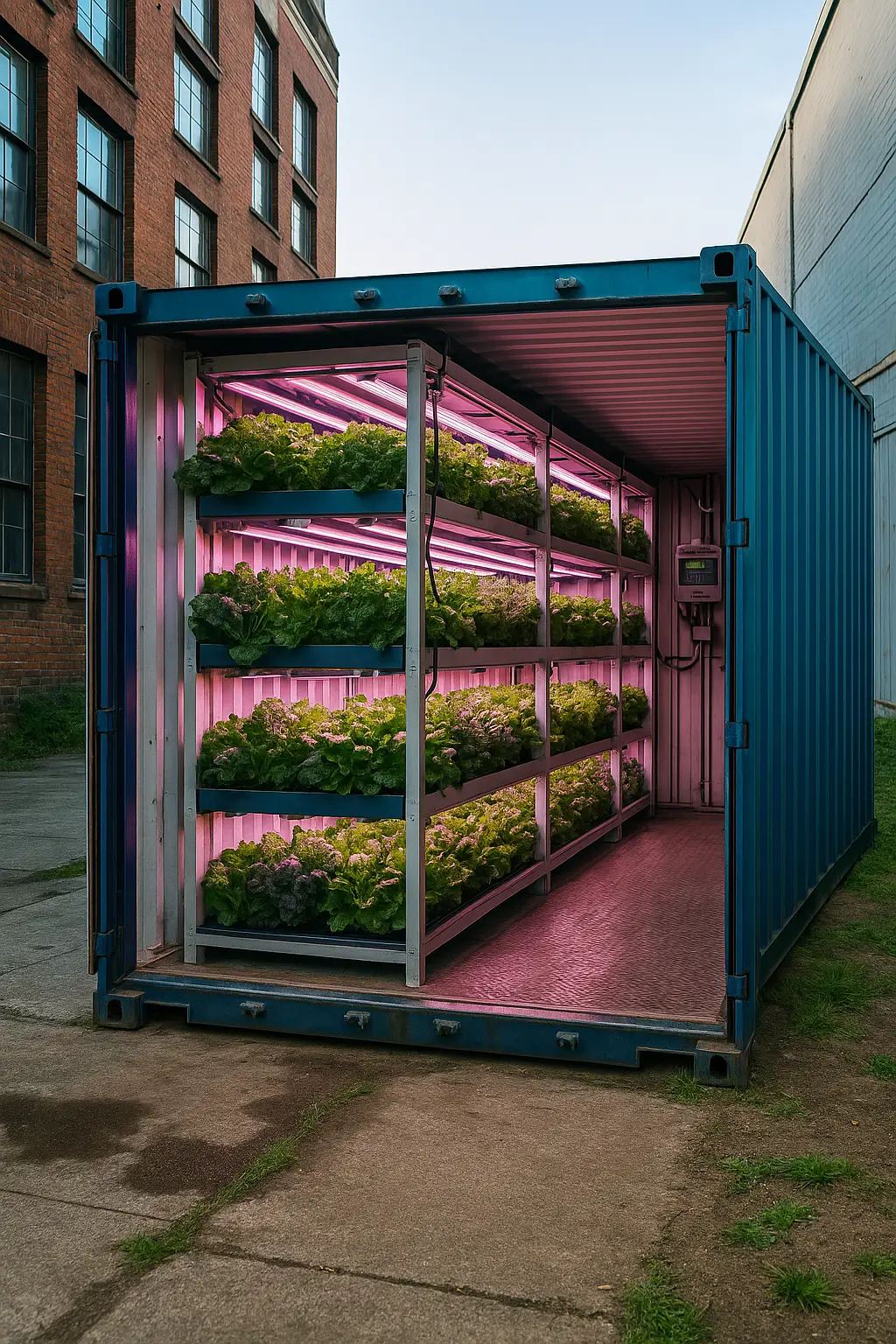Could a recycled shipping container supply your salad—in the heart of a city?
This isn’t sci-fi: it’s modern agriculture inside a 20‑ or 40‑foot container. Outfitted with hydroponics, LED lights, sensory controls, and vertical racks, these farms bring fresh greens to urban streets, rooftops, schools, and markets—without a soil patch in sight.
Why Use Shipping Containers for Vertical Farms?
- Built to move: Durable, insulated, and easily transported—ideal for interim or modular farming.
- Scalable systems: Start small and stack or link more containers as demand grows. Easily deployable to underserved locations or temporary sites.
- Minimal land needed: A single container can match the yield of multiple acres using vertical layout and soilless farming methods.
Tech That Turns Boxes into Farms
These container farms typically include:
- Hydroponic or aeroponic growth systems with nutrient-rich water.
- LED lighting and climate control to mimic ideal growing conditions.
- Automated sensors to regulate temperature, humidity, and water recycling.
- Some prototypes integrate robotic systems (cobots) to automate planting and harvesting.
Urban Benefits You Can’t Ignore
- Food deserts cured: In communities without fresh produce access, these mobile farms can deliver daily harvests just metres away from consumers.
- Year-round output: Controlled environments bypass seasonal limits—greens grow continuously regardless of weather.
- Eco credentials: Ultra-efficient water use and zero transport emissions—producing local food with minimal environmental impact.
Real‑World Success Stories
- Freight Farms pioneered the “Leafy Green Machine”—a 40-ft insulated container farm capable of producing the equivalent of 2.5 acres’ worth of vegetables using under 5 gallons of water per day.
- Brick Street Farms in St. Petersburg features multiple container pods growing leafy greens year-round, serving local markets and schools.
Facing the Trade‑Offs
- High energy costs: Artificial lighting and climate control systems consume significant power—especially where renewables aren’t optimised.
- Upfront investment: Container farms can cost six or even seven figures, making ROI challenging for smaller operators.
- Crop limitations: Best suited to leafy greens and herbs; fruiting plants or staples remain tough to grow in tight, vertical systems.
“Repurposed shipping containers are rewriting the rules of farming. Their durability and modular design make them ideal for urban vertical farms—scalable and capable of year‑round production even in dense cities.”
— Eddie Rees, Conversions Manager, Cleveland Container
Interested in launching a container farm? Whether in a school courtyard, carpark, or community centre, I can help map the tech stack, ROI model, or crop plan that suits your urban space.









